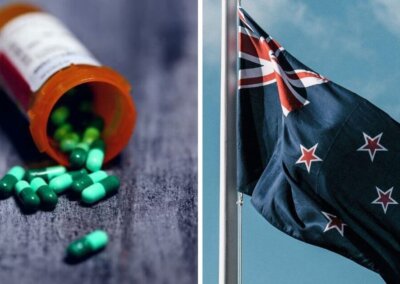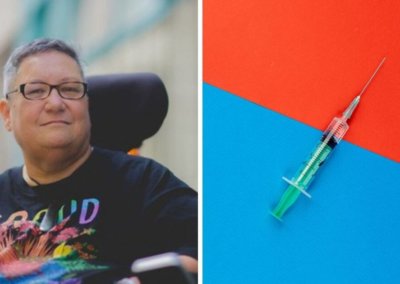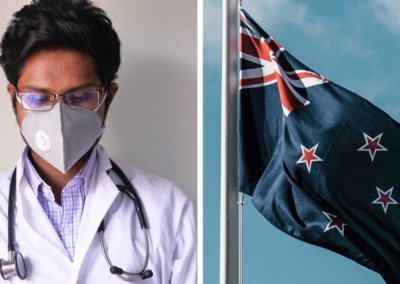Patients undergoing euthanasia in New Zealand will be given unapproved, unregulated and “off-label” drugs, raising concerns about the possibility of a prolonged and distressing death.
A new law that willpermit euthanasia in New Zealand is set to come into force in November this year but documents from the Ministry of Health, obtained by Radio New Zealand, show that the drugs that will be used to end the life of a patient will not have been manufactured specifically for that purpose. Rather, the drugs used in euthanasia will be compounds made by pharmacists and provided to the patients without being approved for this purpose by the regulator Medsafe.
The Ministry of Health said that those seeking euthanasia would be given drugs which were approved by Medsafe for a different purpose. Their use as a drug to end life would be an unapproved or ‘off-label’ use.
Among the documents obtained by Radio New Zealand is an email from the medical director at the Royal New Zealand College of GPs, Dr Bryan Betty, warning that mixing concoctions of drugs had led to traumatic deaths.
Dr Betty referenced American states with a lack of access to drugs used to administer the death penalty saying:
“So they made up their own concoctions initially, with examples of prolonged processes until fine-tuned. Belgium had a standard process but (this was) not used by many doctors for some years, also resulting in prolonged, distressing deaths”.
He went on to say: “There have been concerns expressed internationally over … the concoction of medication that is used, that in some cases, has led to traumatic end of life experiences”.
Sourcing euthanasia drugs a “key risk”
Documents from New Zealand’s Ministry of Health identify the sourcing of euthanasia drugs as a “key risk” to the assisted suicide regime.
“We understand that the medications that are commonly used for the purpose overseas are not available in New Zealand”, a policy manager with the ministry wrote in a December email.
Further documents from January warned that the euthanasia drugs “will not be available on day 1″ unless a tight time frame was met, noting that it took up to 18 months to regulate a new medication.
Part of the motivation for the use of “off-label” drugs arises from a series of issues with the supply of drugs used to euthanise people overseas. In particular, some countries ban the export of drugs used in lethal injections in the US.
As such, the Ministry of Health intends to permit a pharmacist to mix a new euthanasia drug after getting a prescription from a doctor under the Medicines Act 1981. The compounded drugs will then be administered orally or intravenously.
“I think that puts doctors who are performing euthanasia in a very dodgy position”.
Dr Keryn Powell, a Napier GP, said it was frightening to hear “off-label” and unregulated medicines would be used.
“There would have to be legal cover for any doctors using it off-license because if something goes wrong, who is responsible?” she asked.
“I think that puts doctors who are performing euthanasia in a very dodgy position. How are they actually going to protect the people administering them if something goes wrong?”
Lack of scrutiny
Further concerns have been raised concerning the secrecy provisions in the ‘End of Life Choice Act’, which will allow any media company to be fined $20,000 for naming the method of euthanasia, making public scrutiny of the drugs being used very difficult.
The Ministry of Health documents indicate that similar provisions in the US have already created problems regarding the use of drugs for state executions. A 2018 study in the Journal of the American Pharmacists Association looked at how US states were coping with the shortage of execution drugs.
“By purchasing medicines from non-FDA approved suppliers, and enacting lethal injection sourcing secrecy laws, states are undermining the robust enforcement of chain of custody and pharmaceutical supply chain transparency”, the study said.
What happens when a euthanasia attempt fails?
The documents raise additional concerns about what would happen were an initial attempt at euthanasia to fail. Although Health Minister Andrew Little said that the issue of failed euthanasia attempts had not been raised with him, documents released from his Ministry suggested the the contrary to this claim.
A 2019 study in the journal Anesthesia reviewed by the Ministry said that there were no standardised methods for euthanasia resulting in frequent cases of prolonged and distressing deaths.
“With all these forms of assisted dying there appears to be a relatively high incidence of vomiting (up to 10 percent) prolongation of death (up to seven days) and re-awakening from a coma (up to 4 percent)”.
Last year, New Zealand became the first country in the world to introduce euthanasia by popular mandate as 65.2% of voters supported the ‘End of Life Choice Act’ in a binding referendum. Evidence has since emerged that there was widespread confusion about what people were actually voting for.
Right To Life UK spokesperson, Catherine Robinson, said: “The euthanasia legislation in New Zealand looks set to be an administrative nightmare that risks patient care for the sake of ensuring that the service is available by November. Euthanasia legislation is a profound attack on the dignity of the person and a serious risk to the most vulnerable in our society who will inevitably face pressure through various means to end their lives. The unapproved use of euthanasia drugs, however, which could lead to an agonising death, add a further indignity to the legislation, which presumably was introduced, at least in part, to alleviate a prolonged and painful death.”
“Through the use of unapproved drugs that risk a prolonged and painful death, these documents reveal a deeply flawed attempt to introduce an unethical practise with next to no regard for patient care in the administration of lethal drugs”.












